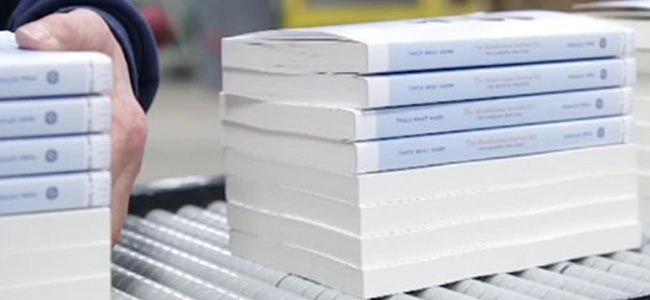In an increasingly digital landscape, physical mediums such as books, magazines and print ads have to work harder than ever to grab attention. But that doesn’t mean that they don’t still have a few unique tricks up their sleeves. To create a striking book design, be sure to follow these five simple steps.
Read the text before you design
Designing a book printing without reading the text is like having sex wearing duffle coats. Take the advice of the great Dutch book designer Irma Boom: “I always read the text of the books I design. If I don’t know the content, I can’t design. Because I know the content I can go further than other people.”
Print it out to size
The first rule of book printing design is: print everything out. The second rule is: prototype. Designing a book printing today without a computer is unthinkable, but books are dimensional, so check every stage of the design process by printing out to size. Also, always get a dummy made before you start designing pages.
Use the right binding
If your book is a perfect bound paperback, make sure the pages lie flat when opened. A spine that works like a clamshell is a design fail and a manufacturing fail. Insist on water-based, cold-glue binding. Also, make sure the grain of the paper runs horizontally. Your printer should know this, but many still get it wrong.
Focus on the minor details
Think hard about the furniture of a book: folios, running heads, captions and so on. If these details are not well judged, the end result will suffer. They have an impact out of all proportion to the space they take up. Good designers pay attention to these minor details.
Develop editorial skills
As designers we should approach the task of designing a book in the same way that an editor approaches editing one. Most designers are capable of editorial thinking. They have an instinct for the hierarchical arrangement of information and for points of emphasis.
